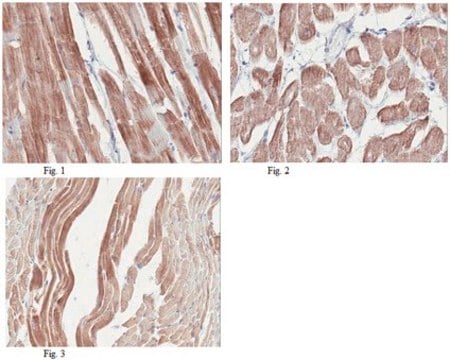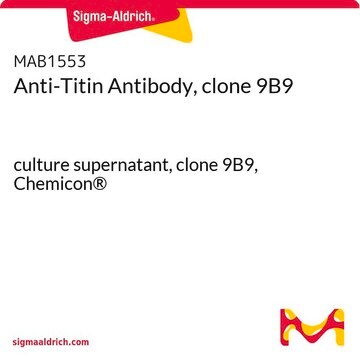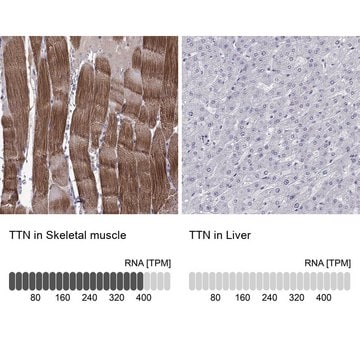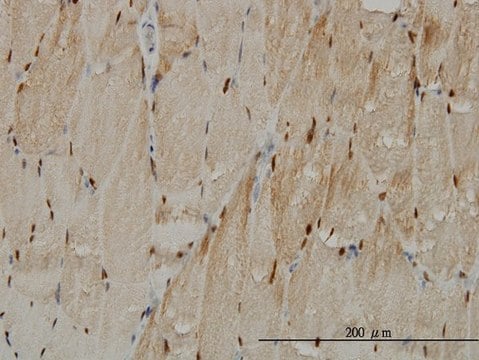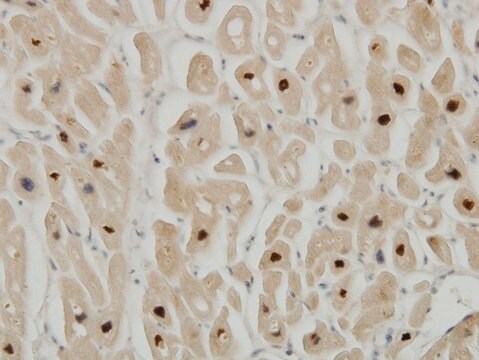T9030
Monoclonal Anti-Titin antibody produced in mouse
clone T11, ascites fluid
Sinonimo/i:
Anti-CMD1G, Anti-CMH9, Anti-CMPD4, Anti-EOMFC, Anti-HMERF, Anti-LGMD2J, Anti-LGMDR10, Anti-MYLK5, Anti-SALMY, Anti-TMD
Scegli un formato
About This Item
Prodotti consigliati
Origine biologica
mouse
Coniugato
unconjugated
Forma dell’anticorpo
ascites fluid
Tipo di anticorpo
primary antibodies
Clone
T11, monoclonal
contiene
15 mM sodium azide
Reattività contro le specie
vertebrates, chicken
tecniche
electron microscopy: suitable
immunohistochemistry (frozen sections): suitable
indirect immunofluorescence: 1:1,000 using frozen tissue sections of animal skeletal muscle
western blot: suitable
Isotipo
IgG2b
Condizioni di spedizione
dry ice
Temperatura di conservazione
−20°C
modifica post-traduzionali bersaglio
unmodified
Informazioni sul gene
chicken ... TTN(424126)
Descrizione generale
Specificità
Immunogeno
Applicazioni
- western blotting
- antibody staining[1]
- immunofluorescence microscopy
- immunohistochemistry
Azioni biochim/fisiol
Esclusione di responsabilità
Non trovi il prodotto giusto?
Prova il nostro Motore di ricerca dei prodotti.
Codice della classe di stoccaggio
12 - Non Combustible Liquids
Classe di pericolosità dell'acqua (WGK)
nwg
Punto d’infiammabilità (°F)
Not applicable
Punto d’infiammabilità (°C)
Not applicable
Scegli una delle versioni più recenti:
Certificati d'analisi (COA)
Non trovi la versione di tuo interesse?
Se hai bisogno di una versione specifica, puoi cercare il certificato tramite il numero di lotto.
Possiedi già questo prodotto?
I documenti relativi ai prodotti acquistati recentemente sono disponibili nell’Archivio dei documenti.
I clienti hanno visto anche
Active Filters
Il team dei nostri ricercatori vanta grande esperienza in tutte le aree della ricerca quali Life Science, scienza dei materiali, sintesi chimica, cromatografia, discipline analitiche, ecc..
Contatta l'Assistenza Tecnica.